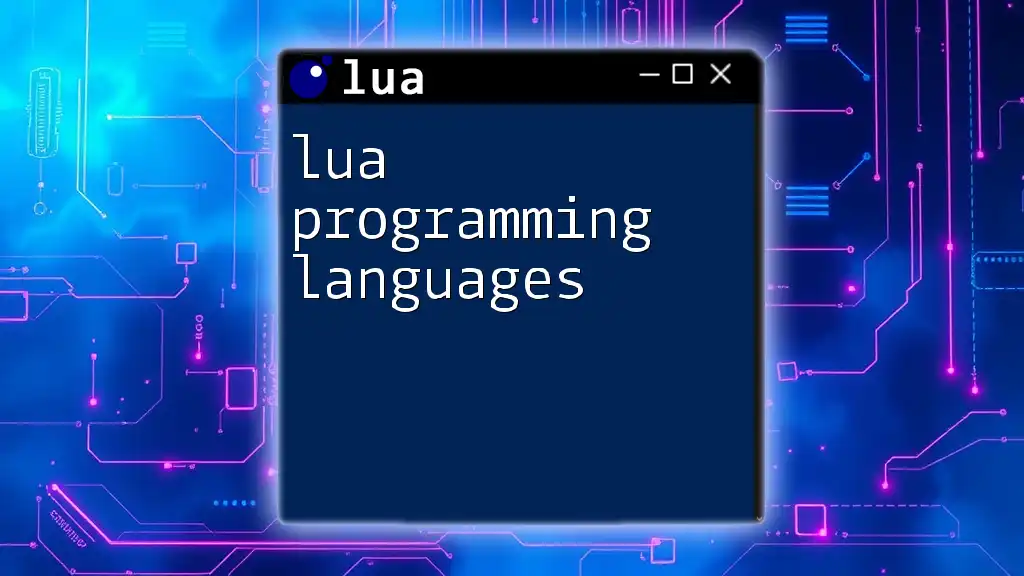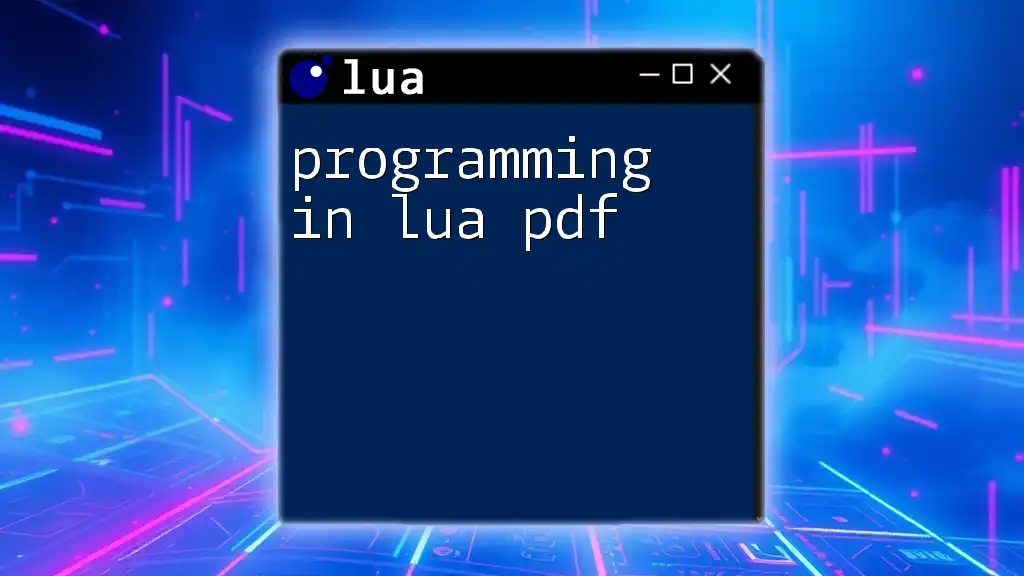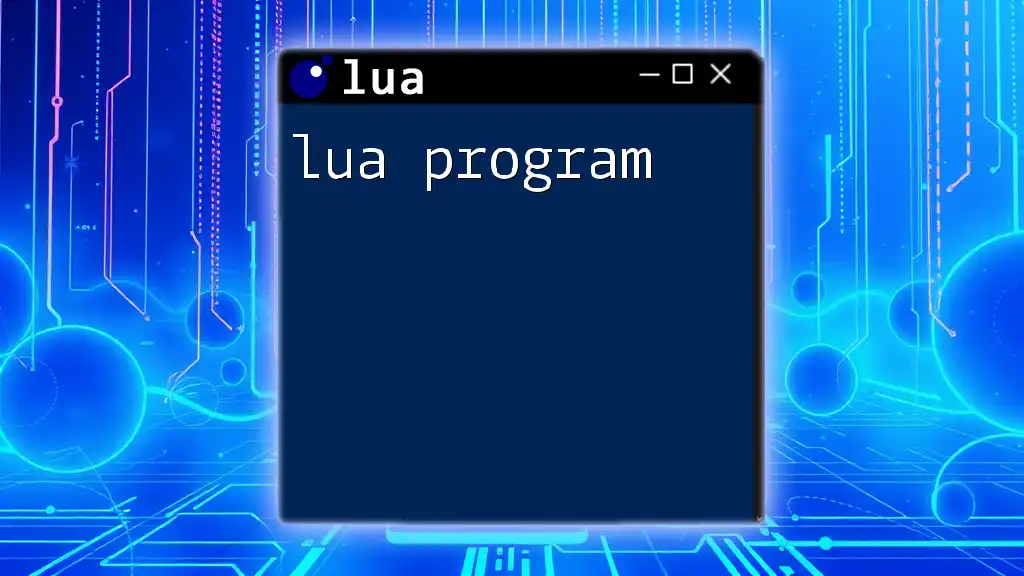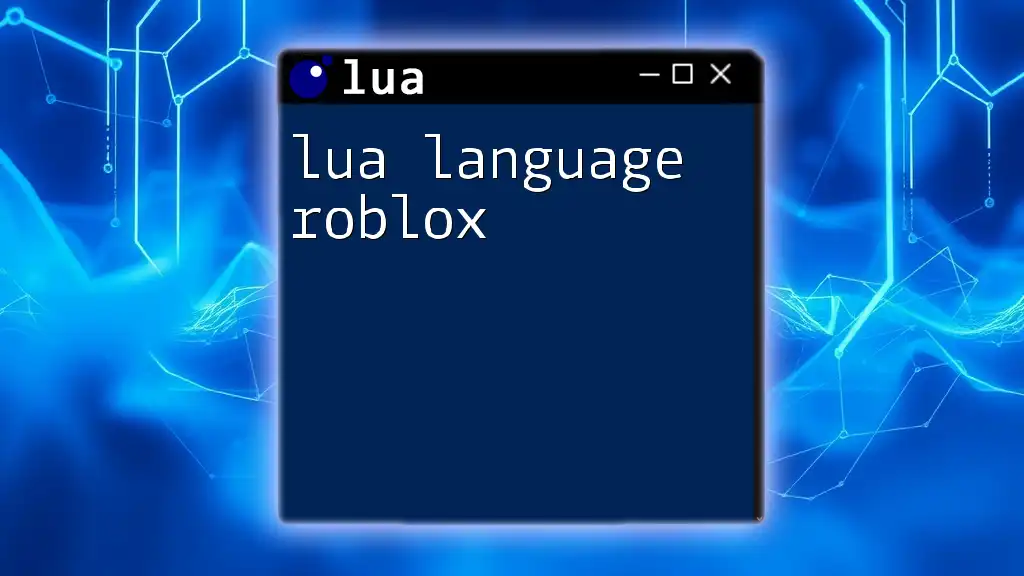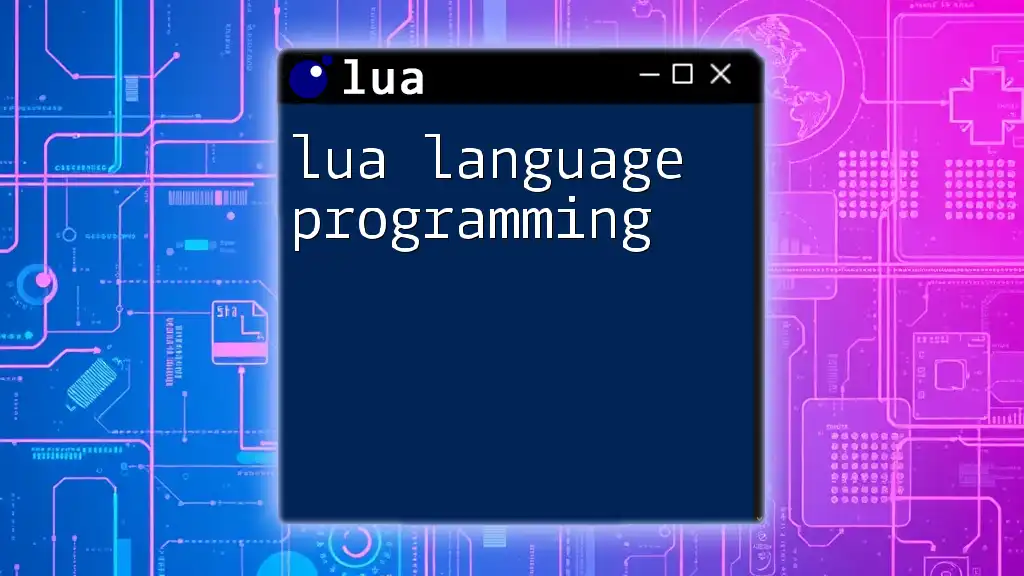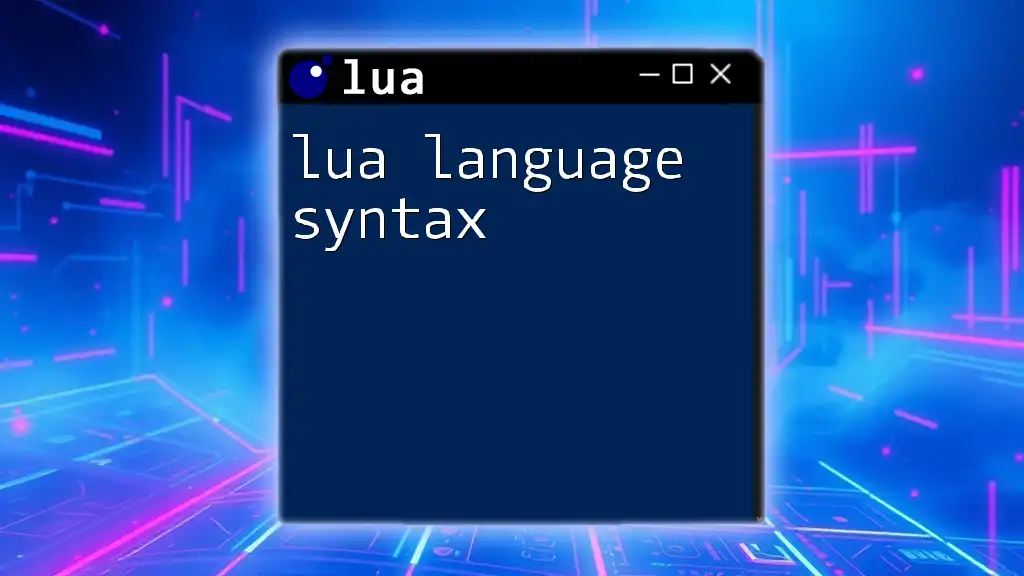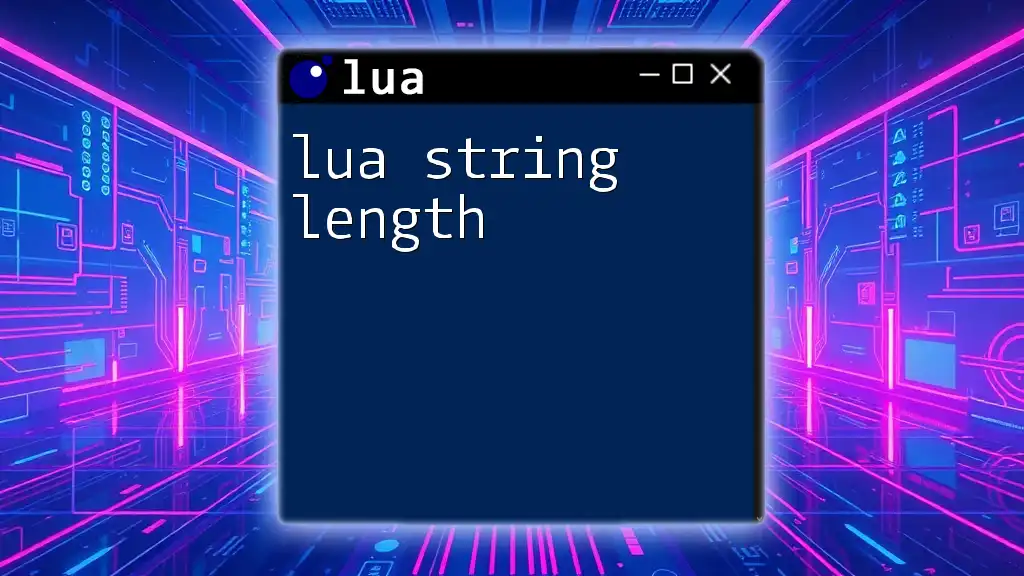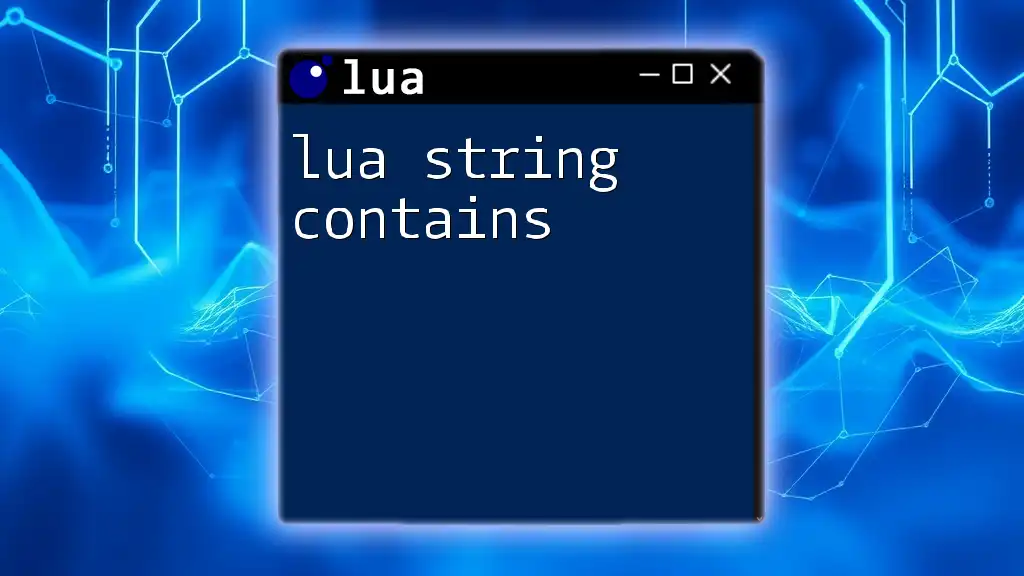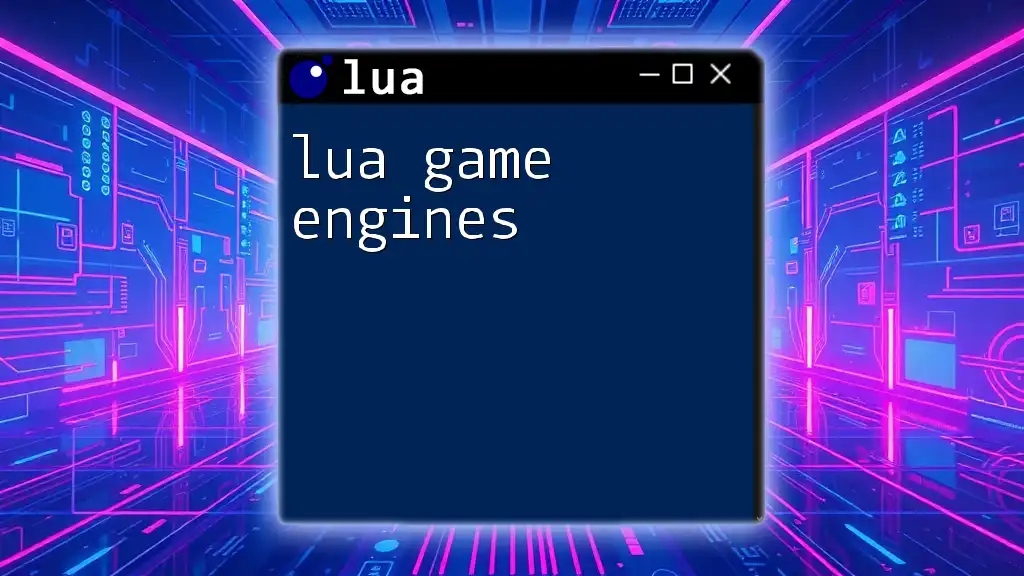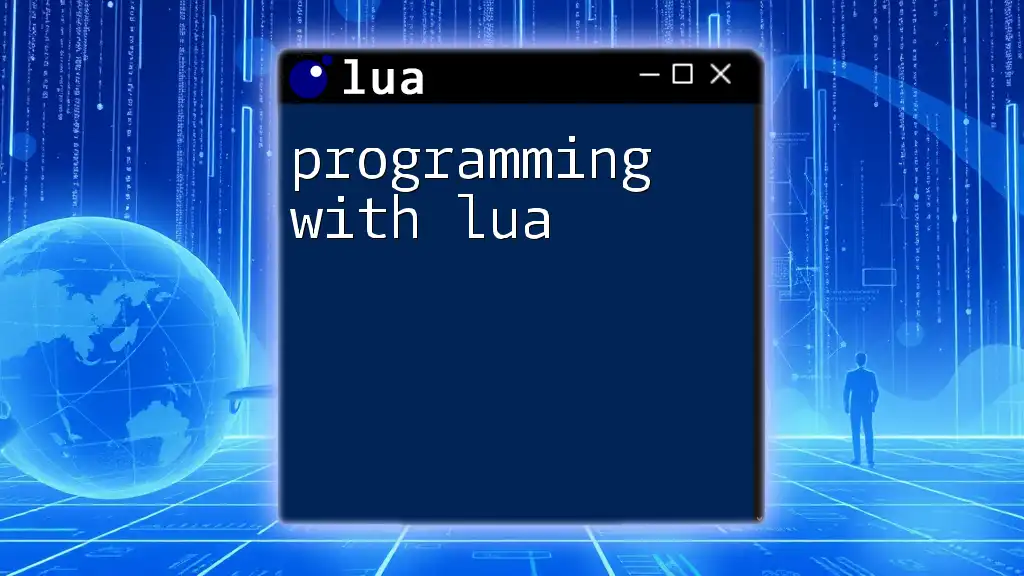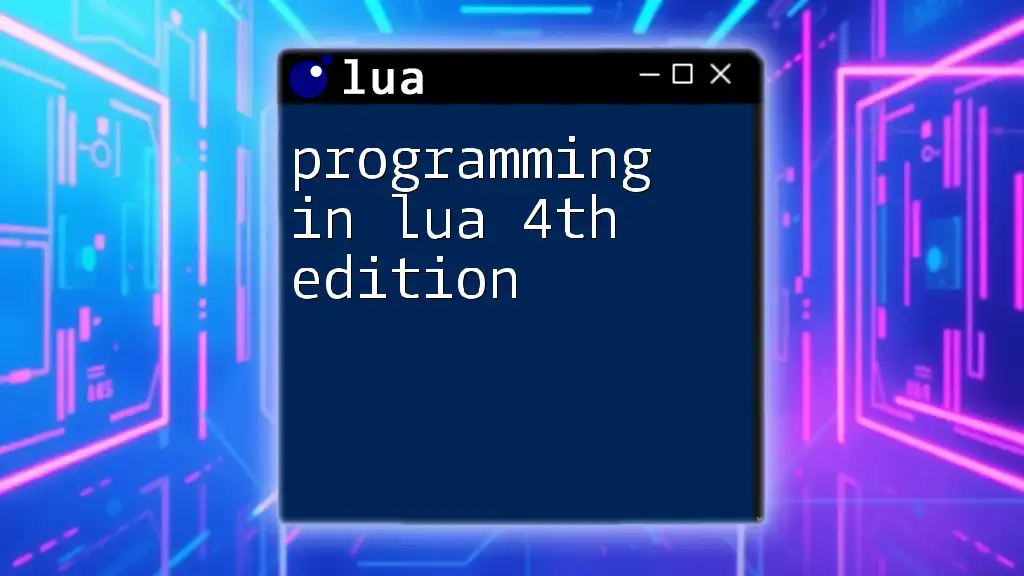Lua is a lightweight, high-level programming language designed for embedded use and scripting, known for its simplicity and flexibility.
Here's a basic example of a Lua script that prints "Hello, World!" to the console:
print("Hello, World!")
Why Choose Lua?
Lua’s efficiency and performance make it an excellent choice for scripting. Whether you're developing a game, creating a web application, or automating tasks, Lua provides a straightforward and effective way to get the job done quickly. One of its distinguishing features is its lightweight footprint, which allows it to be embedded seamlessly into other applications.
Lua enjoys significant popularity in various industries, particularly in game development. Many well-known platforms, such as Roblox and Adobe Lightroom, leverage Lua for its scripting capabilities. Additionally, Lua powers numerous web applications and even stands out in the Internet of Things (IoT) space due to its versatility and ease of integration.
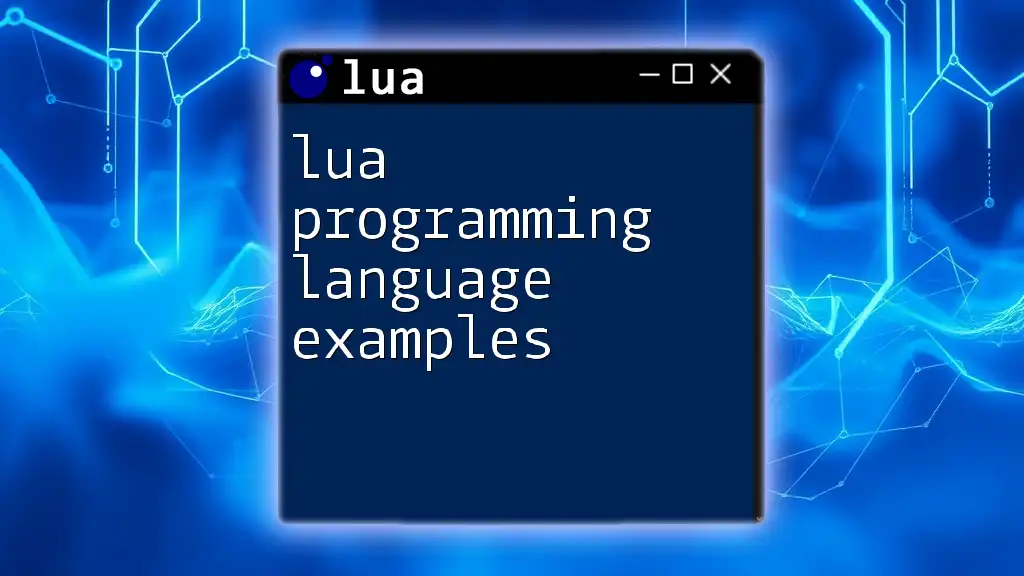
Basic Syntax and Structure of Lua
Understanding Lua Syntax
Lua’s syntax is both simple and flexible, making it accessible for beginners while providing enough depth for experienced programmers. The language employs a variable assignment model that is intuitive, supporting various data types such as strings, numbers, and booleans.
Example: Declaring variables in Lua is as simple as:
name = "John" -- String
age = 30 -- Number
isActive = true -- Boolean
Control Structures
Lua uses familiar control structures including if-else statements and loops—essential for controlling the flow of programs.
Conditional Statements (if, else)
With conditional statements, you can execute code based on certain conditions. Below is a simple example demonstrating how to use an `if` statement:
if age >= 18 then
print("Adult")
else
print("Minor")
end
In this case, if the value of `age` is 18 or higher, the output will be "Adult"; otherwise, it will print "Minor".
Loops (for, while)
Loops are fundamental for iterating through data or performing actions multiple times. Here’s a `for` loop example:
for i = 1, 5 do
print("Iteration: " .. i)
end
This loop will print "Iteration: 1" through "Iteration: 5", allowing for easy repetition of actions.
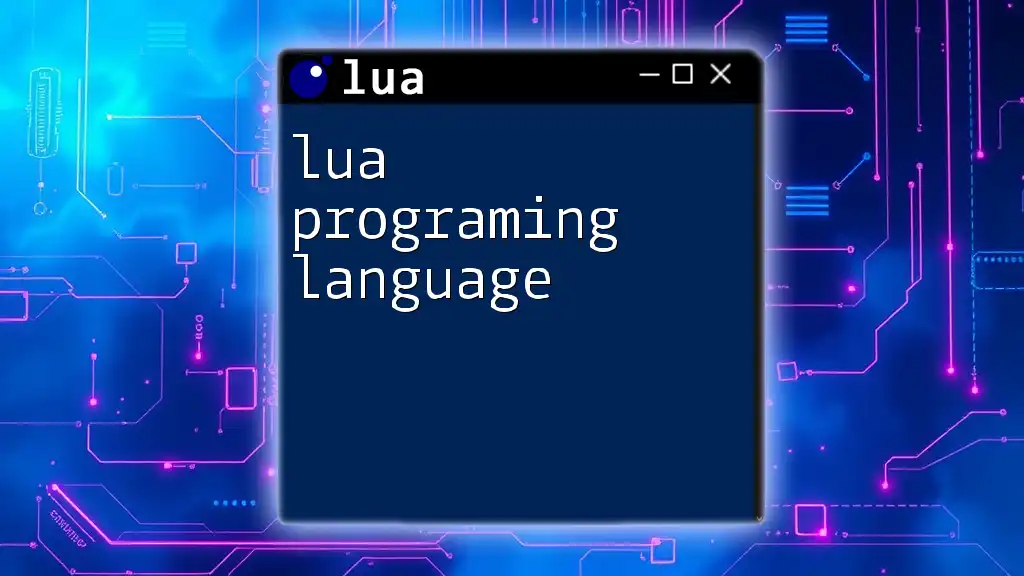
Functions in Lua
Defining and Using Functions
Functions are a core part of programming in Lua. They provide a way to encapsulate reusable blocks of code. The syntax for defining a function is straightforward, exemplified as follows:
function greet(name)
return "Hello, " .. name
end
print(greet("Alice")) -- Output: Hello, Alice
In this example, the function `greet` takes a parameter `name` and returns a greeting string.
Scope and Local Variables
Understanding scope is crucial for writing effective programs. In Lua, there are global and local variables. Local variables are usually restricted to the function they are defined in, helping to prevent naming collisions and other unintended side effects.
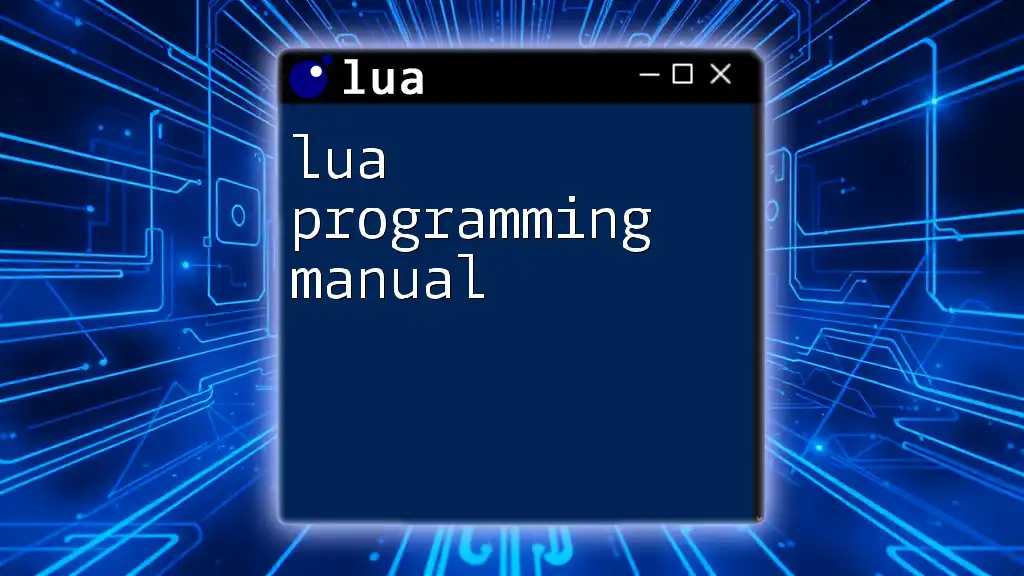
Tables: The Heart of Lua
Understanding Tables
Tables in Lua are incredibly versatile data structures that combine features of arrays, dictionaries, and lists. They are the cornerstone of data management in Lua programs.
Creating and Manipulating Tables
You can easily create tables in Lua. For instance:
person = {name = "John", age = 30}
print(person.name) -- Output: John
In this example, `person` is a table containing the attributes `name` and `age`.
Iterating Over Tables
You can traverse tables using `pairs`, which allows you to interact with both keys and values easily:
for key, value in pairs(person) do
print(key .. ": " .. value)
end
This iteration outputs all keys and their respective values, showcasing the flexibility of this data structure.
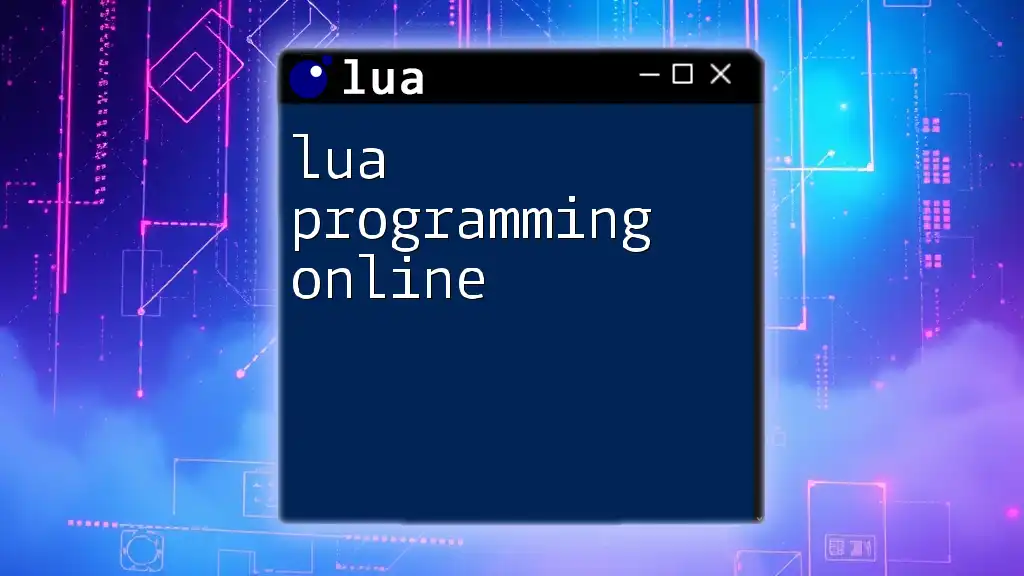
Lua Scripting Language: Application in Real-World Context
Using Lua in Game Development
Lua has established itself as a dominant scripting language in the game development sector. Its efficiency and speed make it the preferred choice for many popular game engines such as Corona SDK and LÖVE. With its simple syntax and capability to handle complex data operations, developers can craft engaging gameplay experiences effortlessly.
Automation and Scripting Tasks
Lua is also invaluable for automating various tasks, from simple file parsing to complex server management scripts. The simplicity of Lua allows it to be used for quick prototyping or ad-hoc tasks, featuring easy-to-write and efficient code.
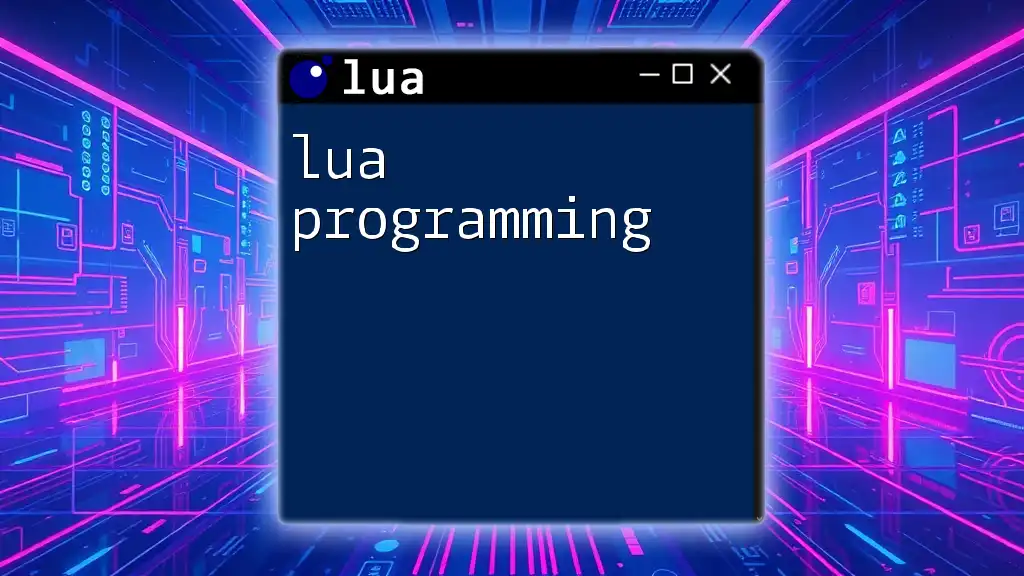
Debugging and Error Handling
Common Errors in Lua
When programming in Lua, you may encounter common errors such as syntax mistakes and runtime issues. Recognizing these errors early can save significant time during development.
Strategies for Debugging Lua Code
Effective debugging methods include using print statements to output the state of variables and program flow. Lua also includes debugging tools to assist programmers in identifying issues in their scripts.
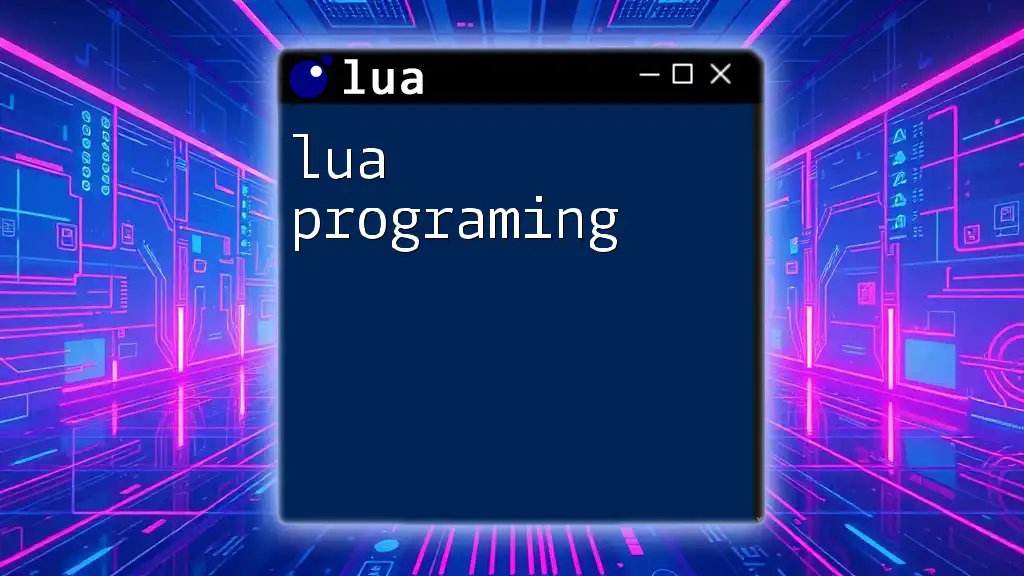
Integrating Lua with Other Languages
Using Lua with C/C++
Lua’s design promotes embedding within other languages. If you're developing in C or C++, integrating Lua adds a layer of flexibility. Here’s a basic example of how you can call a Lua script from C:
luaL_dofile(L, "script.lua");
This line of code executes a Lua file, demonstrating how seamlessly Lua can be integrated into larger applications.
Lua with Web Languages (like JavaScript)
In the modern web landscape, Lua is frequently integrated with web technologies. Its lightweight nature permits it to function efficiently alongside languages like JavaScript, enhancing the versatility of web applications.
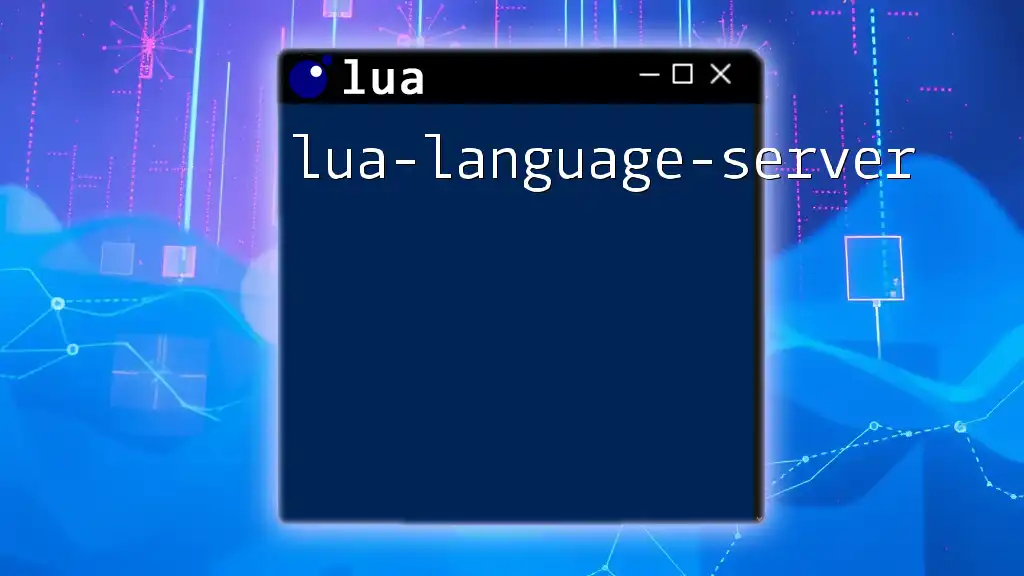
Conclusion
Learning Lua opens up a world of opportunities for developers. Its simplicity combined with powerful features makes it a compelling choice for various applications, from games to web programming. As you explore the world of Lua programming languages, consider examining the myriad resources available to enhance your skills and capabilities.
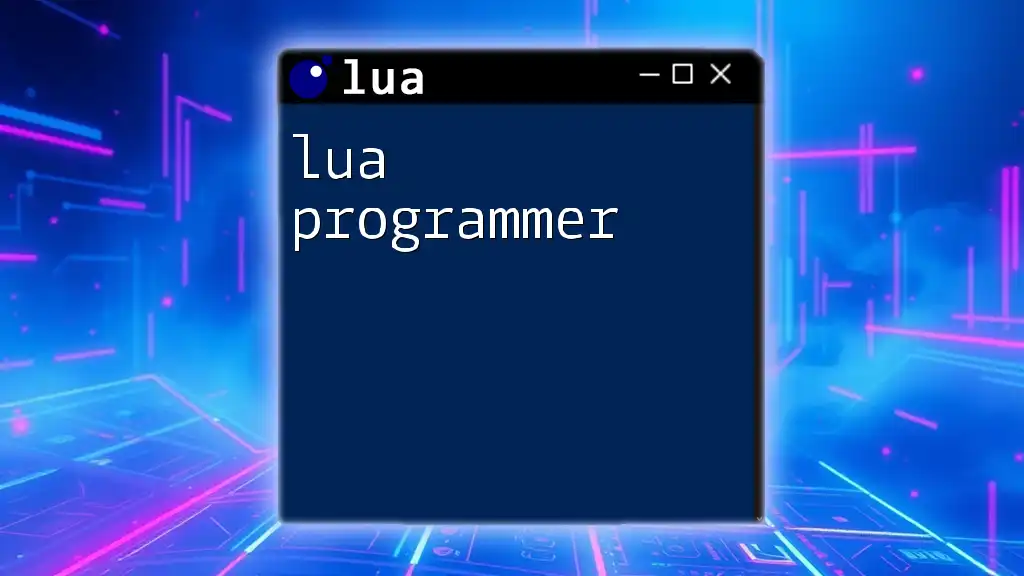
Call to Action
Join us to explore more about Lua! Sign up for our tutorials and courses to master this incredible scripting language and unlock its potential in your projects.
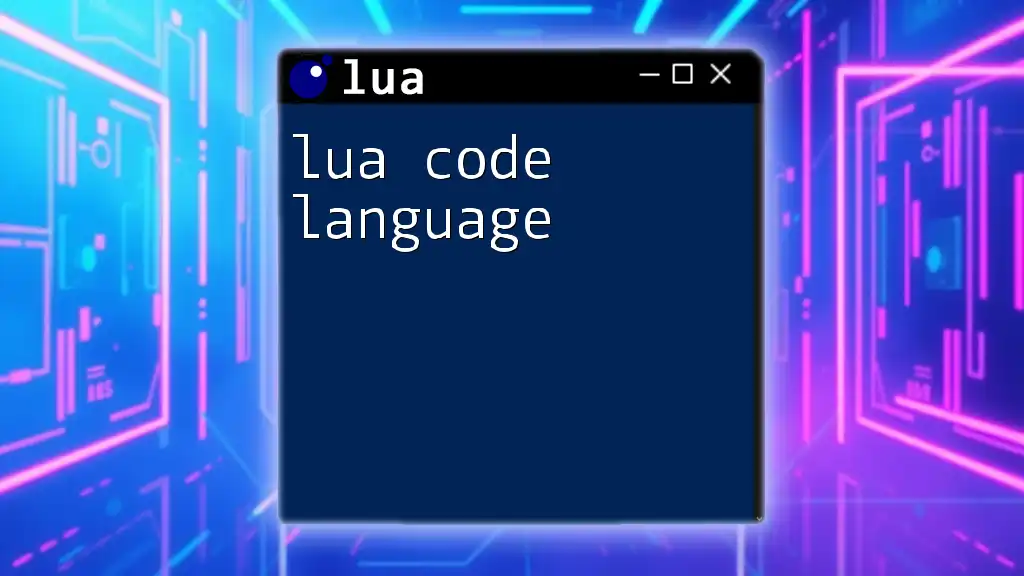
References
To deepen your understanding of Lua programming languages, consider checking out books, websites, and communities dedicated to Lua. These resources can provide valuable insights and support as you embark on your Lua programming journey.

